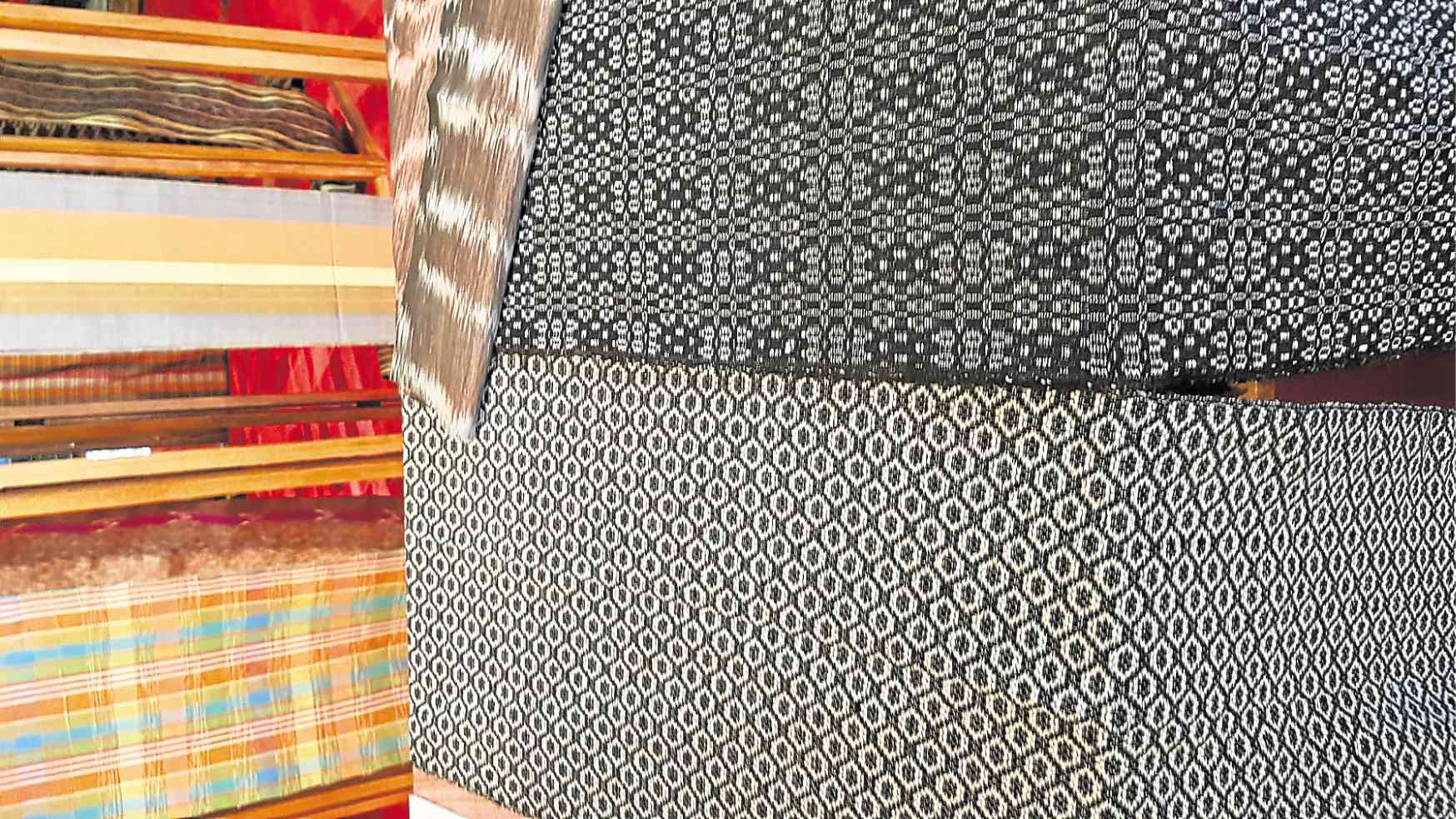Weaving a story of triumph
Women in different communities of the Philippines are literally weaving their way to economic empowerment and financial independence.
Assisted by GREAT (Gender Responsive Economic Action for the Transformation of Women) Women, they are using, learning, adapting traditional weaving skills in their respective communities to acquire sustainable livelihood.
The impressive—and colorful— output of these newly empowered women are showcased until March 31 at Shangri-La Makati to mark the annual observance of Women’s Month. The month-long celebration is dubbed “Tapestry: Celebrating the GREAT in Women”.
Ongoing until March 31 at the hotel’s lobby is an exhibit of fabrics, “Inspirations and Innovations: A Textile Collection,” that showcases both traditional and contemporary designs.
A fashion show at 3 p.m. on March 30 at Makati Shangri-La’s Lobby Lounge will cap the month-long celebration. It will feature a collection of clothes using textiles from Panay in Western Visayas.
“Using pure cotton woven with new colors, the hablon and patadyong (checks and plaids) from communities in Miag-ao, Iloilo, Badjangan and Oton will make their debut in the fashion show “WEAVE: Celebrating the GREAT in Women”, said Jeannie Javelosa, GREAT Women director.
On March 29-31, from 9 a.m. to 8 p.m., the GREAT Women Trunk Show will be held at the hotel’s Manila function room. The special three-day selling event will feature fashion apparel and accessories by GREAT Women and works by other designers who have used GREAT Women textiles.
Javelosa said all events would be open to the public.
The month-long Tapestry features the work of about a dozen communities in Iloilo (Miag-ao, Oton and Badjangan), Davao del Sur, Marawi City and the Bicol region. The Bagobos’ Ine (the indigenous community’s word for mother), a woman’s traditional textile used only by women, and bandera are on show.
“We also have ‘repurposed’ textiles from Bicol,” said Javelosa. “All others are innovation textiles made by the same communities (mentioned).”
Javelosa said Makati Shangri-La “invited us (for this project) . . . we are very happy that an international luxury hotel, (whose) brand name also stands for sustainabillty, partnered with us on this (venture).”
Complementing the textile display is the special Filipino afternoon tea Shangri-La is serving for the duration of Women’s Month. The hotel’s chefs are incorporating ingredients made by women micro-entrepreneurs, whose ethically produced products are sold at ECHOstore Sustainable Lifestyle (ECHO stands for Environment, Community, Hope Organization).
Afternoon tea is served 3 to 6 p.m. until March 31 at the Lobby Lounge.
GREAT Women promotes the economic empowerment of women through collaborations and market access that provide sustainable livelihood.
The marketing advocacy platform aims to bring to the market products created through the collaboration of small women producers, micro-entrepreneurs, social entrepreneurs, artisans, designers, chefs and lifestyle specialists.
“Market access is given through two social enterprises and brands—GREAT Women (textiles and non-food) and ECHOstore Sustainable Lifestyle (clean and green food products),” according to the organization.
“The development of the supply chain of community handwoven textiles has been the focus of GREAT Women social enterprise. Answering gaps from threads availability, looms appropriateness, textile blends and design-relevance, GREAT Women has looked at bringing innovation and standards in all parts of the textile supply chain. GREAT Women’s most recent project was the Manilacaba with French designer Christian Louboutin, as it closed the loop from the bottom of the pyramid to the global luxury market,” it said.
Both social enterprises, GREAT Women and ECHOstore, give market access to products of marginalized women microenterpreneurs, particularly those in far-flung areas. In addition to helping market the products, they also undertake development programs like developing multi-stakeholder eco-systems of support, training, product development for value addition, innovation, access to working capital and entry into niched global markets.
All this in the name of unleashing the power of women using the communities’ rich weaving tradition. —CONTRIBUTED


